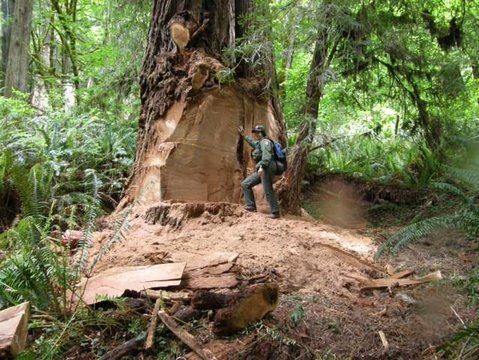
Redwood Poaching Prompts Park Service to Close Roads

Get the world’s most fascinating discoveries delivered straight to your inbox.
You are now subscribed
Your newsletter sign-up was successful
Want to add more newsletters?

Delivered Daily
Daily Newsletter
Sign up for the latest discoveries, groundbreaking research and fascinating breakthroughs that impact you and the wider world direct to your inbox.

Once a week
Life's Little Mysteries
Feed your curiosity with an exclusive mystery every week, solved with science and delivered direct to your inbox before it's seen anywhere else.

Once a week
How It Works
Sign up to our free science & technology newsletter for your weekly fix of fascinating articles, quick quizzes, amazing images, and more

Delivered daily
Space.com Newsletter
Breaking space news, the latest updates on rocket launches, skywatching events and more!

Once a month
Watch This Space
Sign up to our monthly entertainment newsletter to keep up with all our coverage of the latest sci-fi and space movies, tv shows, games and books.

Once a week
Night Sky This Week
Discover this week's must-see night sky events, moon phases, and stunning astrophotos. Sign up for our skywatching newsletter and explore the universe with us!
Join the club
Get full access to premium articles, exclusive features and a growing list of member rewards.
Raiding and thieving has become a growing problem in Redwood National and State Parks in Northern California, where poachers enter the parks at night and leave with large burls and other knotty growths from the tallest trees in the world, the New York Times reports.
The National Park Service has now decided to close a 10-mile-long (16 kilometers) scenic parkway through the redwood parks from sunset to sunrise in an effort to curb the theft and damage imposed on trees that can live for thousands of years.
"Illegal redwood poaching impacts one of the most sensitive resources in Redwood National & State Parks, a designated World Heritage Biosphere Reserve, injuring trees than can live up to 2,000 years old, but also causing related impacts to scenic qualities and threatening endangered species," the National Park Service wrote in an announcement about the road closure, which went into effect on Saturday (March 1). "While regrettable, this closure is a proactive step toward preserving California's and our nation's irreplaceable natural treasures."
The illegally-harvested wood is sold as building materials and souvenirs and goes for as much as $2 to $3 a pound, a burl dealer recently told the Associated Press. A finished dining room table made of redwood can go for as much as $1,300 on eBay, according to the Associated Press.
Follow Laura Poppick on Twitter. Follow us @livescience, Facebook & Google+.
Get the world’s most fascinating discoveries delivered straight to your inbox.

 Live Science Plus
Live Science Plus










